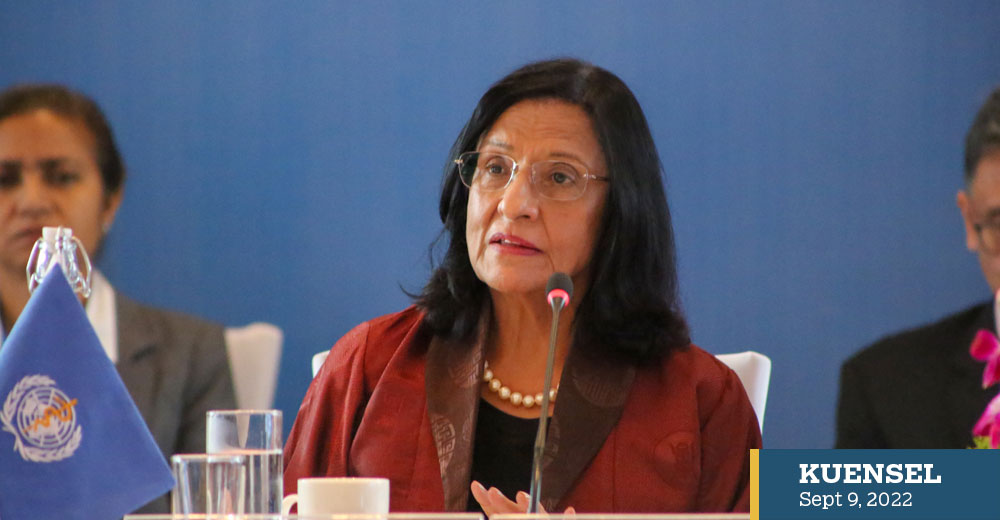Nima Wangdi
The Regional Strategy Roadmap on Health Security and Health System Resilience for Emergencies 2023-2027 is ready to be rolled out in the South-East Asia Region (SEAR) of the World Health Organization (WHO). This was announced at the ongoing 75th session of the regional committee meeting in Paro yesterday.
The roadmap has been formulated after detailed consultations with member countries and experts and incorporates global and regional priorities and recommendations according to the press release from WHO.
“The roadmap prepared based on the Covid-19 pandemic experience is aimed at strengthening preparedness and response capacities for public health emergencies with multi-dimensional impact,” the press release stated.
The press release stated that the roadmap seeks to boost capacities to anticipate, prevent and manage health emergencies while maintaining essential health services through enhanced governance and collaboration within and across countries in the region.
“Globally, risks from natural and man-made hazards are also likely to result in major and frequent health emergencies given the weakened systems that the pandemic would leave,” the press release stated that the threats from climate change are also looming.
SEAR’s Regional Director, Dr Poonam Khetrapal Singh said that the roadmap aims to protect vulnerable economies from the impact of public health emergencies by strengthening national and regional health security and resilience.
She said that the Regional Health Emergency Council (RHEC) comprising Heads of member countries of the region, is being planned in line with the proposal of the Global Health Emergency Council. “It will ensure engagement and commitment of the highest-level political leadership for preparedness and response to health emergencies in the Region.”
“The detailed terms of reference and operational modalities of the RHEC will be worked out in consultation with the member states in due course,” Dr Singh said.
The region is also rolling out ‘WHO South-East Asia Regional Roadmap for Diagnostic Preparedness, Integrated Laboratory Networking and Genomic Surveillance 2023-2027.’ It is developed to provide member countries with a range of policy options to develop sustainable strategies to improve their national laboratories and prepare their laboratory systems to improve surveillance.
The roadmap is expected to help member countries develop or update their national action plans on health security and strengthen whole-of-government to enable more effective public health emergency preparedness, readiness, and response.
This is the third regional committee that Bhutan is hosting. The venue of the regional committee meeting is rotated among the 11 member countries of South-East Asia on an annual basis with the convening held in New Delhi, the headquarters of SEARO, once every five years.
The 75th Regional Committee meeting in Paro ends today.


